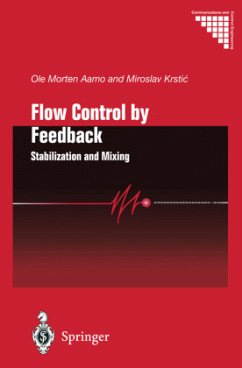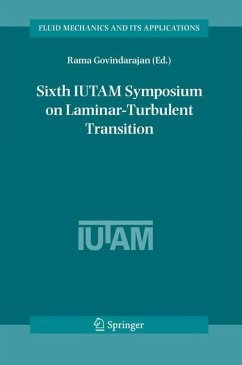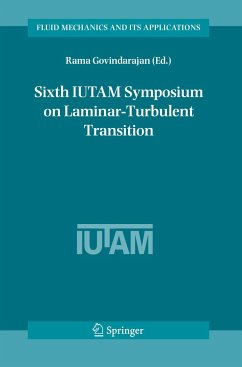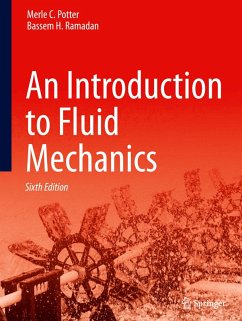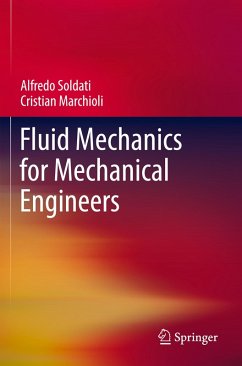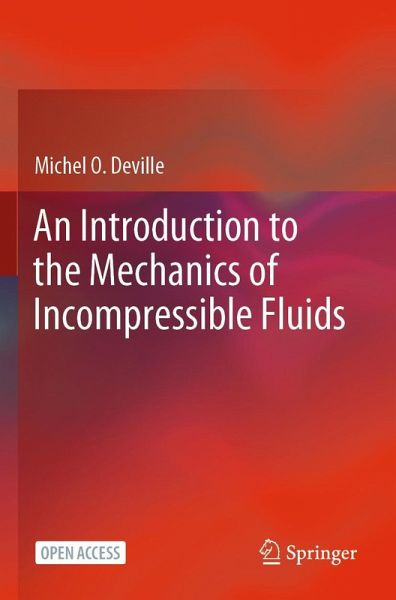
An Introduction to the Mechanics of Incompressible Fluids

PAYBACK Punkte
16 °P sammeln!
This open access book allows the reader to grasp the main bulk of fluid flow problems at a brisk pace. Starting with the basic concepts of conservation laws developed using continuum mechanics, the incompressibility of a fluid is explained and modeled, leading to the famous Navier-Stokes equation that governs the dynamics of fluids. Some exact solutions for transient and steady-state cases in Cartesian and axisymmetric coordinates are proposed. A particular set of examples is associated with creeping or Stokes flows, where viscosity is the dominant physical phenomenon. Irrotational flows are t...
This open access book allows the reader to grasp the main bulk of fluid flow problems at a brisk pace. Starting with the basic concepts of conservation laws developed using continuum mechanics, the incompressibility of a fluid is explained and modeled, leading to the famous Navier-Stokes equation that governs the dynamics of fluids. Some exact solutions for transient and steady-state cases in Cartesian and axisymmetric coordinates are proposed. A particular set of examples is associated with creeping or Stokes flows, where viscosity is the dominant physical phenomenon. Irrotational flows are treated by introducing complex variables. The use of the conformal mapping and the Joukowski transformation allows the treatment of the flow around an airfoil. The boundary layer theory corrects the earlier approach with the Prandtl equations, their solution for the case of a flat plate, and the von Karman integral equation. The instability of fluid flows is studied for parallelflows using the Orr-Sommerfeld equation. The stability of a circular Couette flow is also described. The book ends with the modeling of turbulence by the Reynolds-averaged Navier-Stokes equations and large-eddy simulations. Each chapter includes useful practice problems and their solutions.
The book is useful for engineers, physicists, and scientists interested in the fascinating field of fluid mechanics.
The book is useful for engineers, physicists, and scientists interested in the fascinating field of fluid mechanics.







